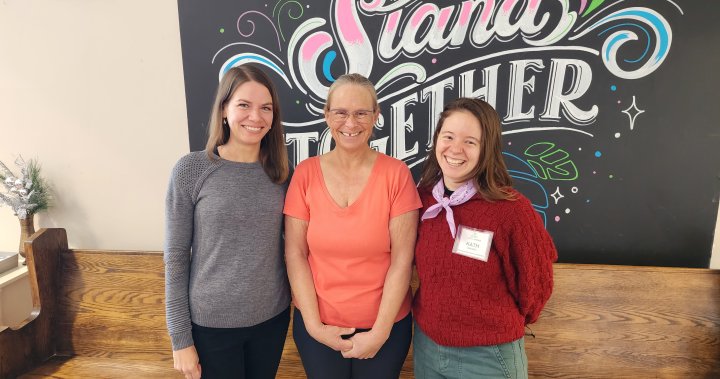On July 2, 2012, Wendy-Ellen Nittel received a phone call that changed her life irrevocably: her 23-year-old son Blaine rolled his pump truck during a routine day at work and was crushed. He died at the scene near Manyberries.
Now, the mother works with the Association for Workplace Tragedy Family Support, known as Threads of Life, to help support fellow families of people who die in workplace fatalities.
She tells the story of her son at exhibitions and trade shows to raise awareness about the importance of safety on the job.
“The only thing I can look at now is my passion for keeping other people safe. So, I will continue to tell his story. Anybody that knows me knows that they’re going to hear about Blaine,” said Nittel.
A special ceremony was marked in Lethbridge on Monday to honour those who have died in a workplace incident.
National Day of Mourning has been observed in 80 countries since 1991, paying tribute to those who lost their lives while on the job.
Breaking news from Canada and around the world
sent to your email, as it happens.
In 2022 across Canada, around 1,000 people died due to job-related incidents, according to the federal government.
According to the province, Alberta saw 165 lives cut short due to workplace tragedies in 2023.
The Medicine Hat woman says people aren’t just statistics.
“We need to have people realize that there’s a person behind each of those numbers,” Nittel said.
“All of these fatalities have real consequences — long-term consequences for families,” added Tim Scott, the health and safety coordinator with the City of Lethbridge.
The city said thankfully, there have been no reported traumatic workplace deaths in recent years.
Jeremy Charlesworth, the member engagement coordinator with CUPE 70, said his organization hopes to give employees confidence to speak up and say something if they’re facing dangerous work.
“It’s definitely difficult to make that decision. Especially for those workers that are not part of the union, that don’t have a union to back them up if they bring those concerns up to their employers,” Charlesworth said.
Nittel said support for health and safety is improving but there’s still a long way to go. She wants workers to know that they can say no to unsafe work.
“They don’t have to do something just because the boss or supervisor says they have to.”
© 2024 Global News, a division of Corus Entertainment Inc.




